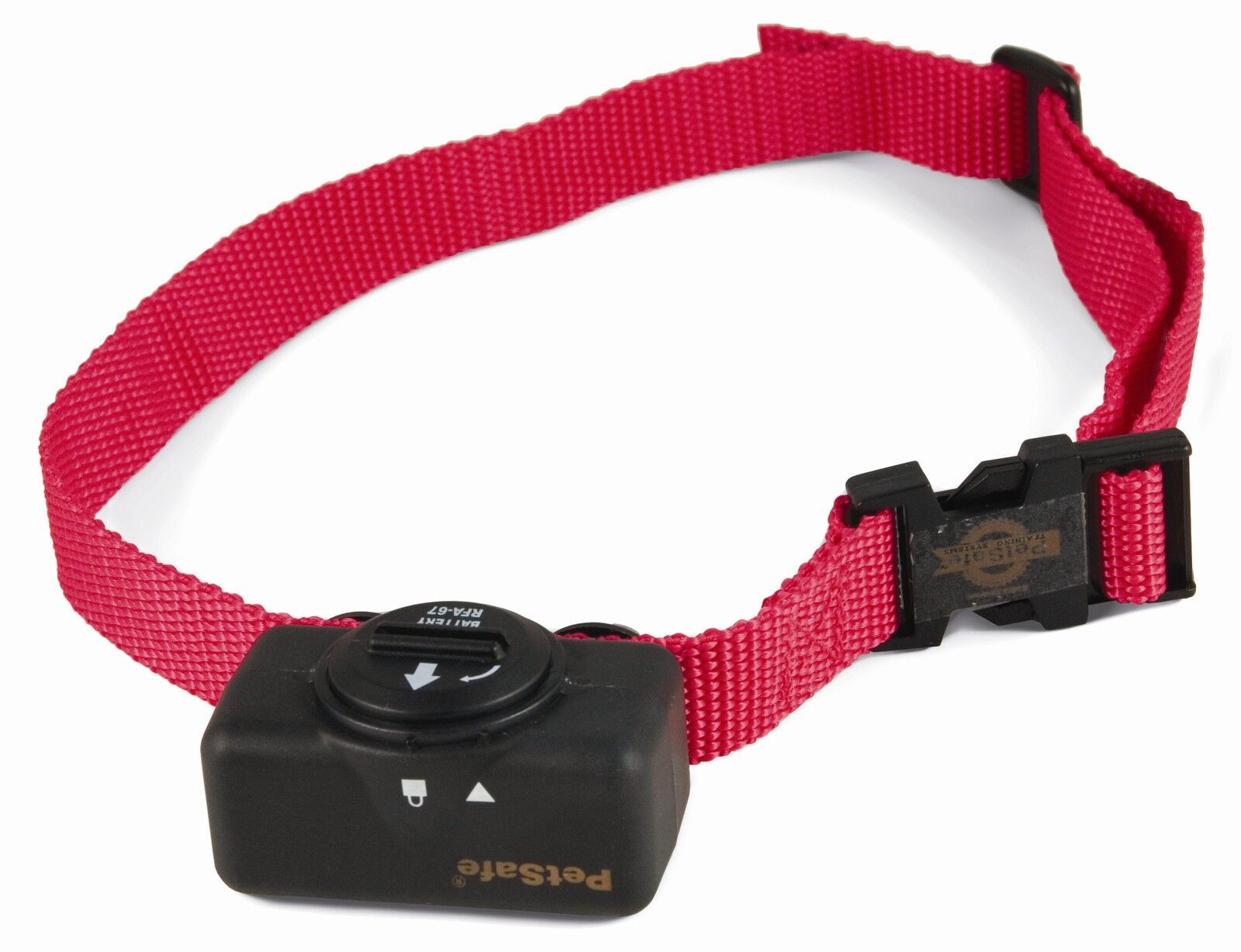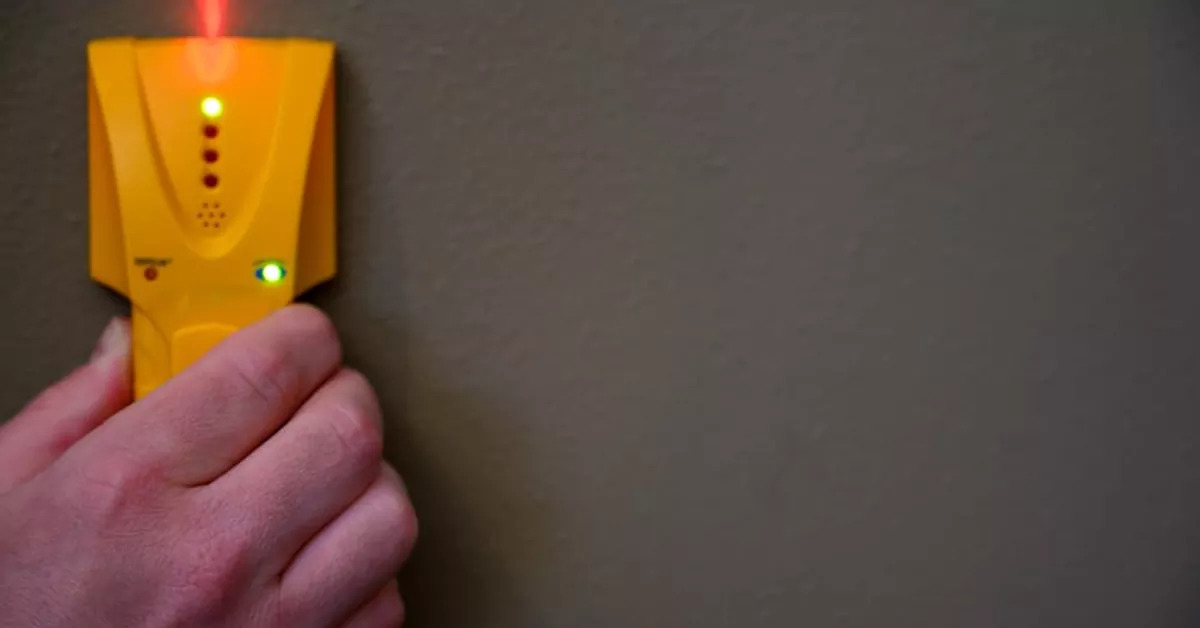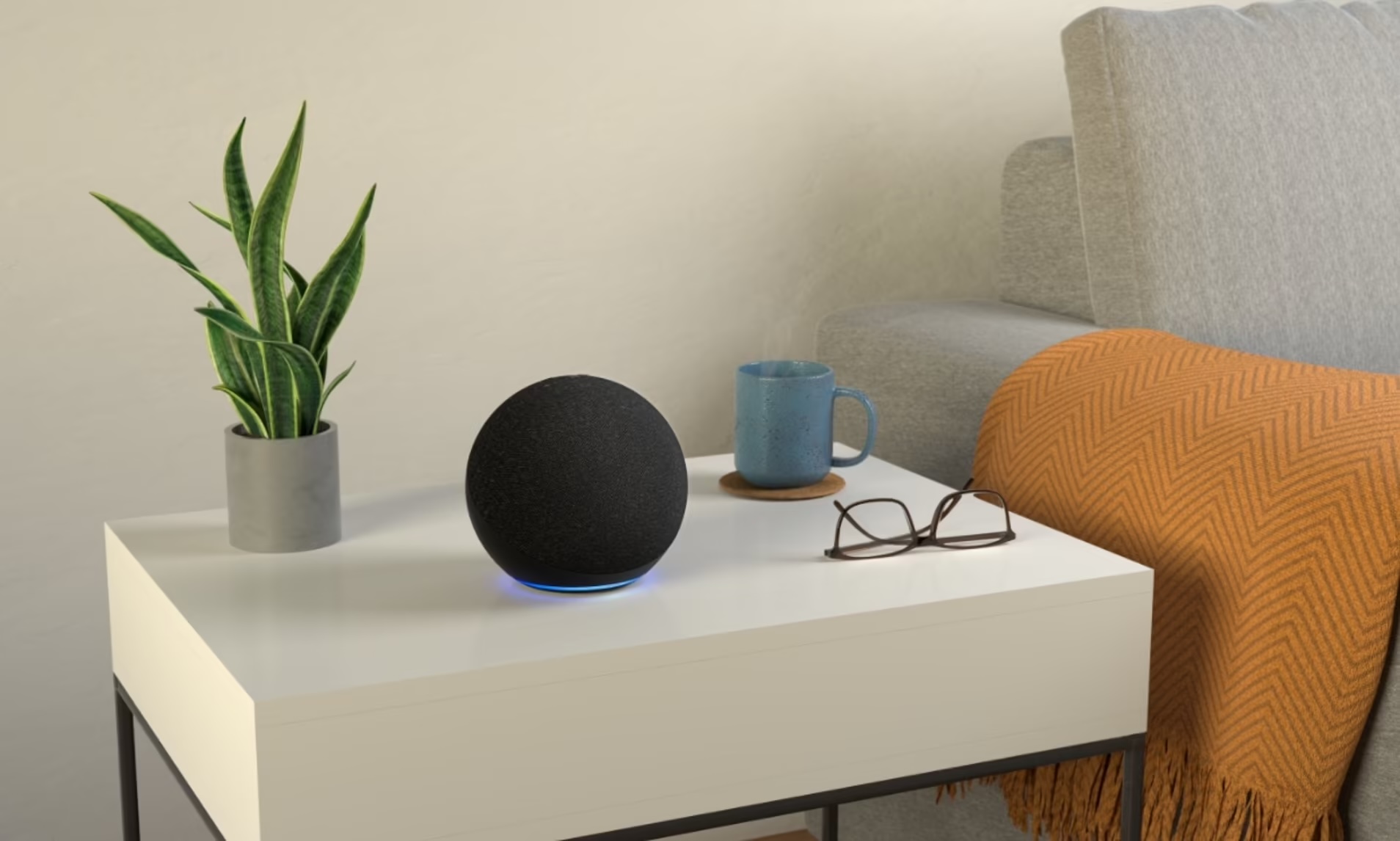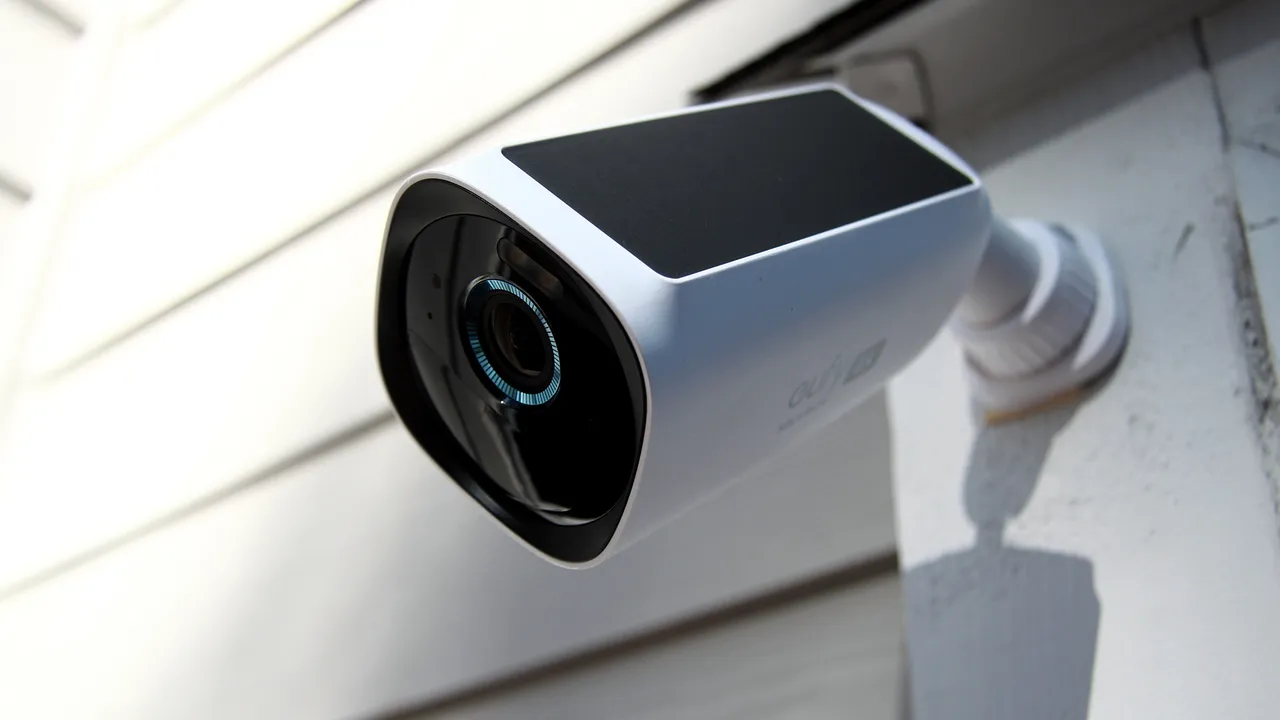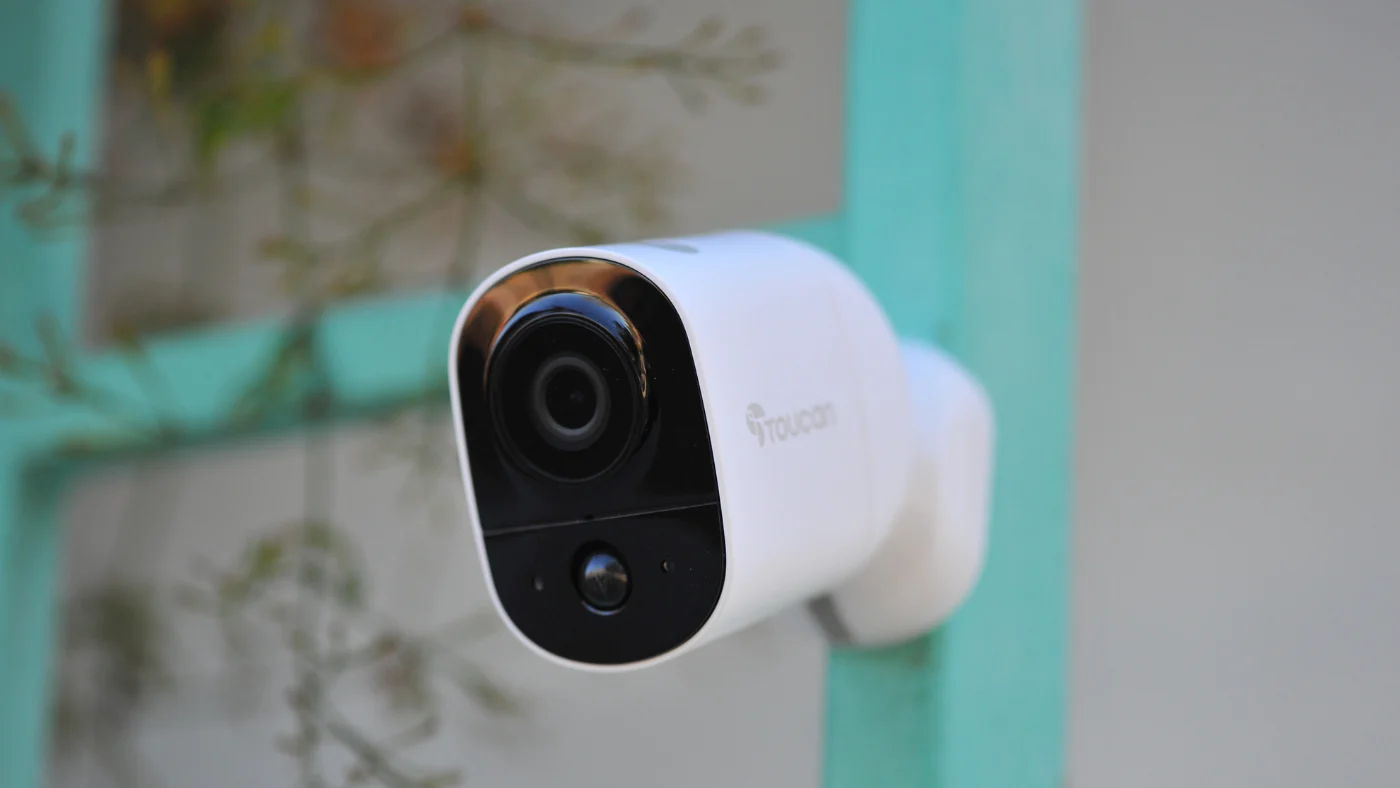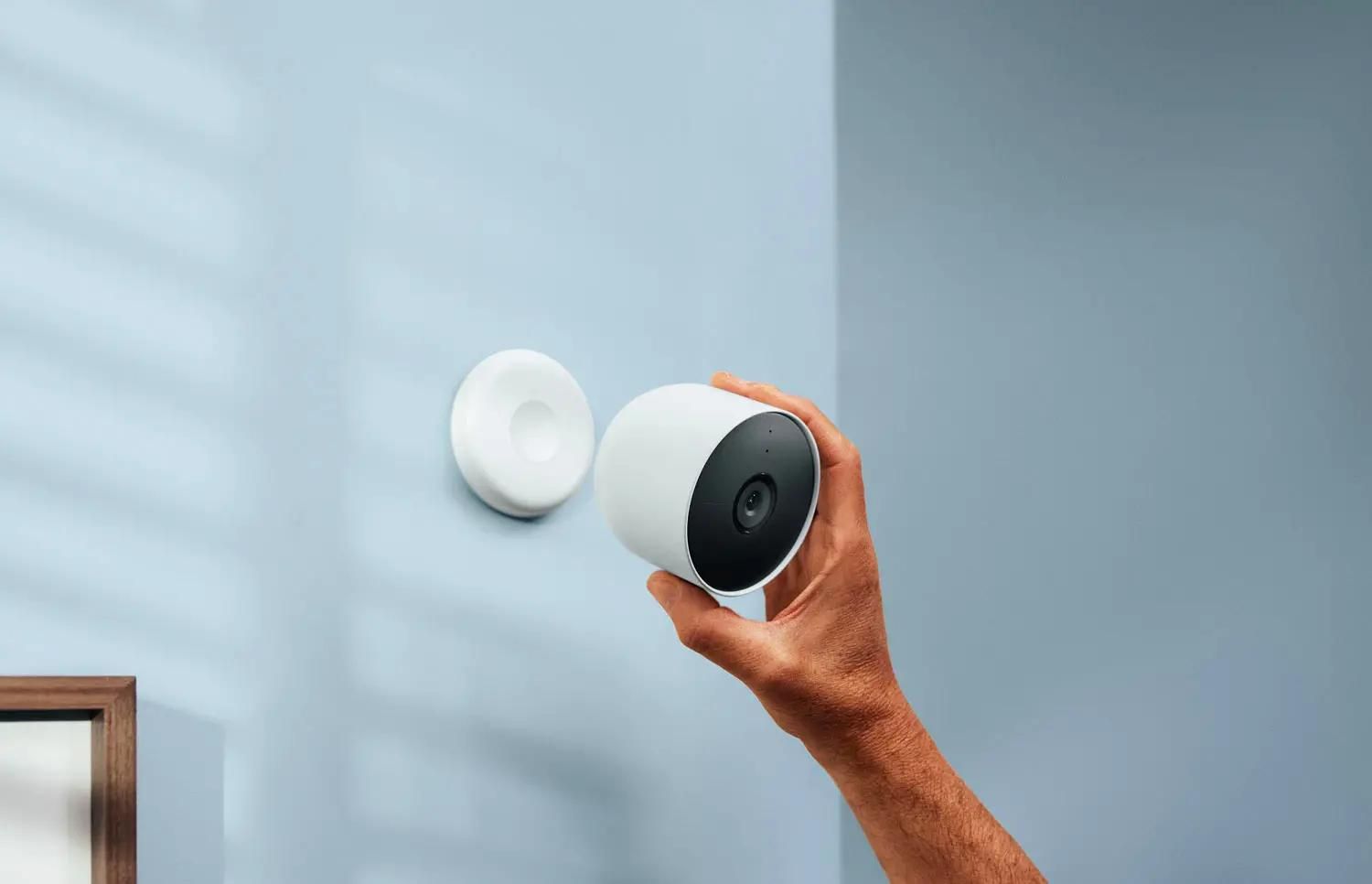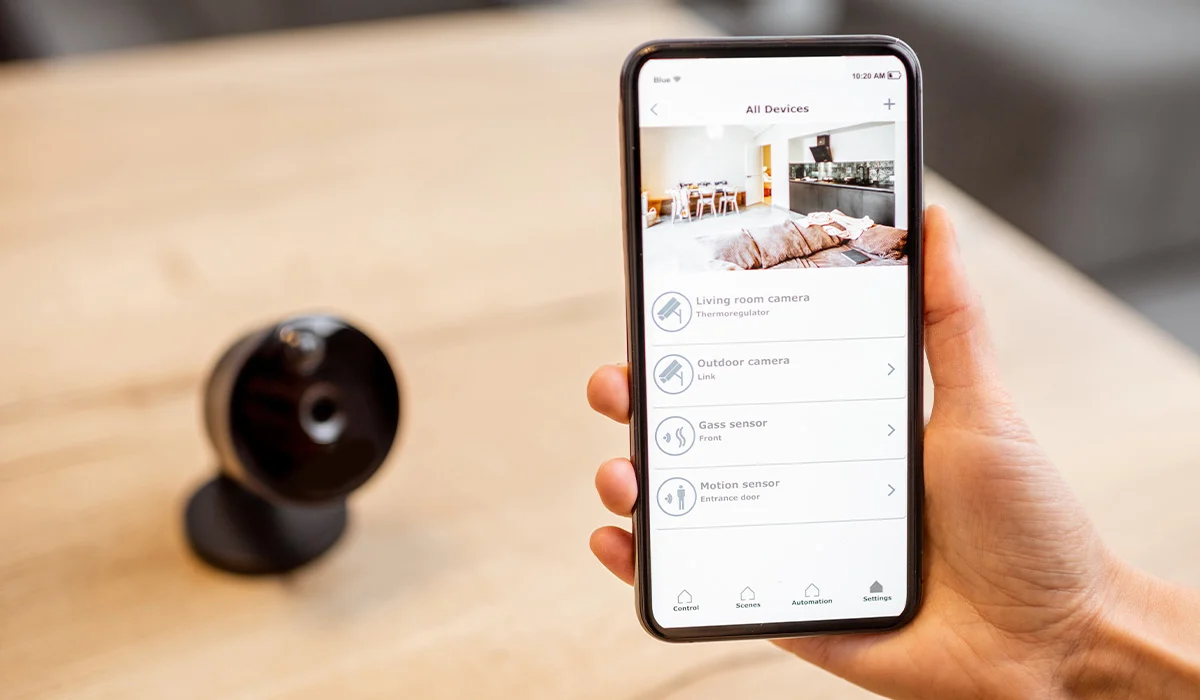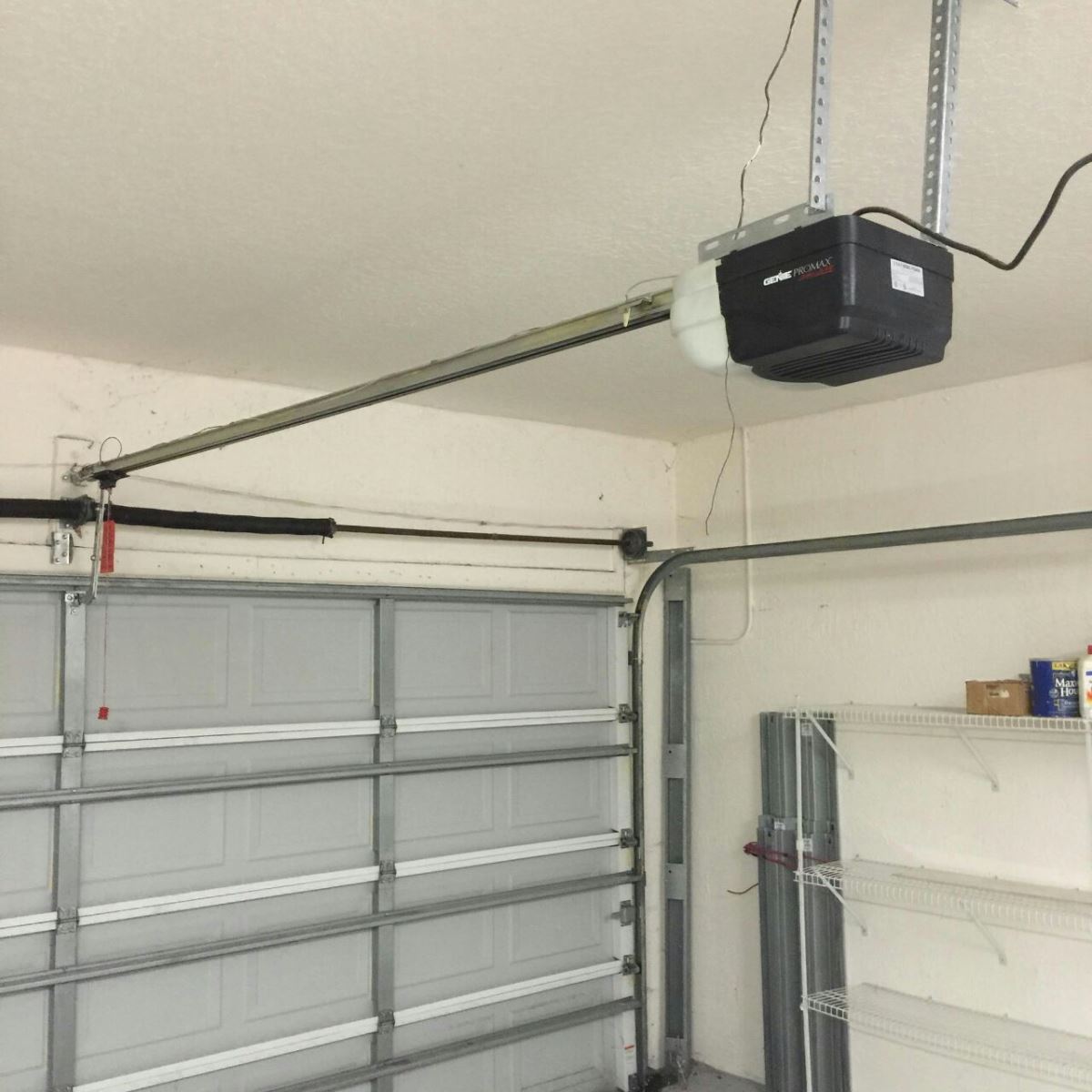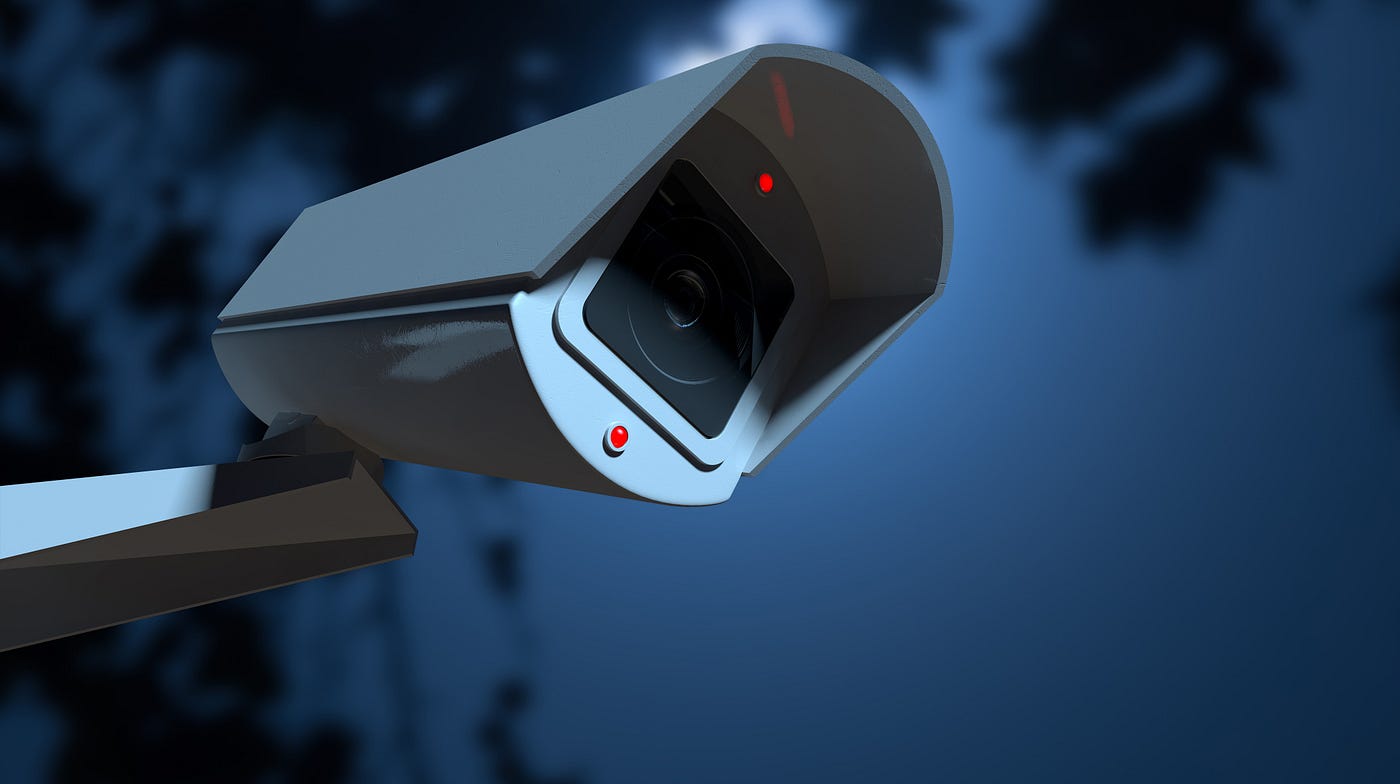Home>Home Security and Surveillance>Why Is My Security Camera Beeping
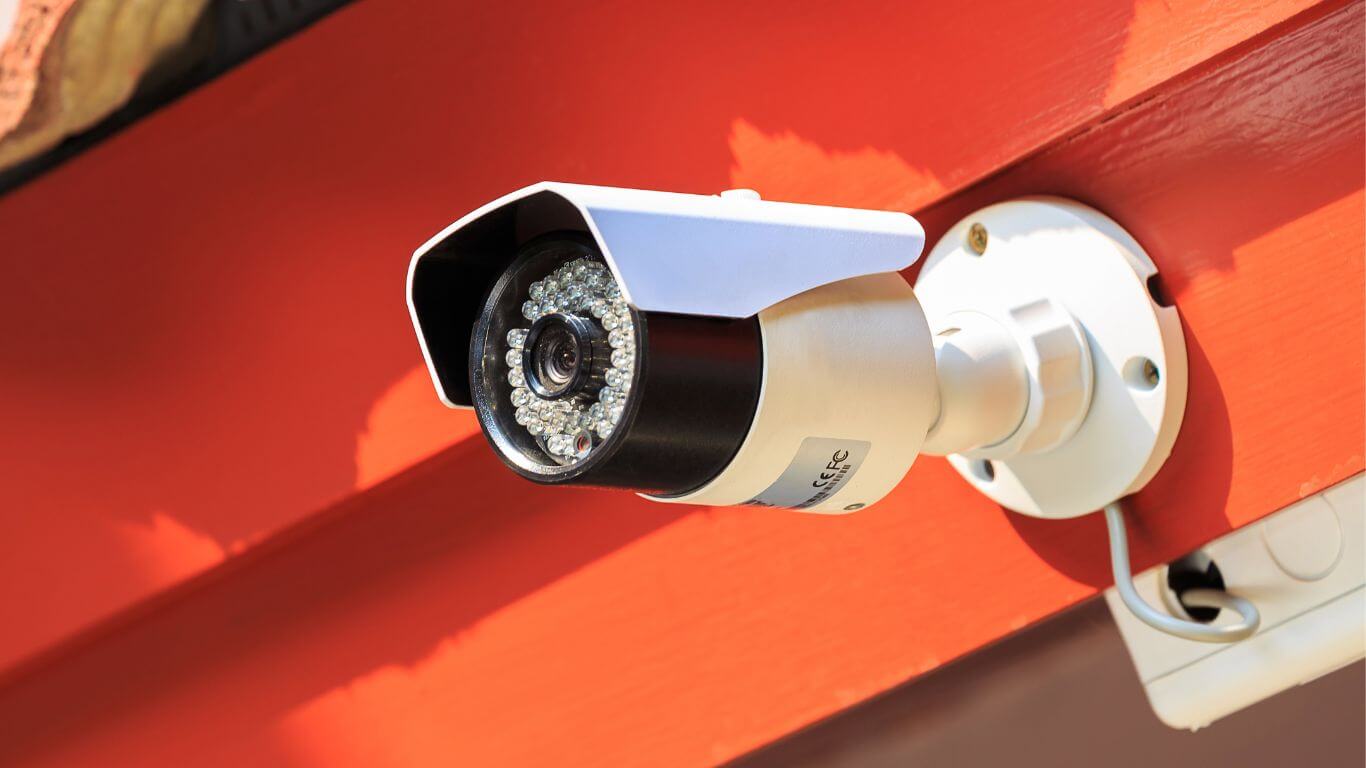

Home Security and Surveillance
Why Is My Security Camera Beeping
Modified: March 6, 2024
Learn why your security camera is beeping and discover solutions for home security and surveillance systems.
(Many of the links in this article redirect to a specific reviewed product. Your purchase of these products through affiliate links helps to generate commission for Storables.com, at no extra cost. Learn more)
Introduction
Home security cameras are an essential component of any comprehensive residential security system. They provide peace of mind by allowing homeowners to monitor their property, deter potential intruders, and gather evidence in the event of a break-in or other safety concerns. However, encountering unexpected beeping from your security camera may raise alarm bells and leave you wondering what could be causing the disturbance.
While it is perfectly normal for security cameras to emit occasional beeps as part of their regular operation, persistent or frequent beeping could indicate an underlying issue that needs attention. In this article, we will explore the possible reasons behind a beeping security camera and provide troubleshooting steps to resolve the beeping issue.
Key Takeaways:
- Don’t ignore a beeping security camera! It could be due to low battery, power failure, signal interference, system errors, or tampering. Follow troubleshooting steps to address the issue and ensure your home’s security.
- Regularly check and maintain your security camera to prevent beeping issues. Address low battery, power source problems, signal interference, system errors, and tampering to keep your home safe and secure.
Read more: Why Is My Security Camera Flickering
Possible Reasons for the Beeping
If your security camera is beeping, there could be several reasons behind it. Understanding these possible causes can help you identify and resolve the issue effectively. Here are some common reasons for a beeping security camera:
- Low Battery: Many security cameras operate on battery power. If you have wireless cameras or a battery-powered backup system, a beeping sound could indicate that the batteries are running low and need to be replaced. Check the camera’s battery level and replace the batteries if necessary.
- Power Failure: Security cameras connected to a power source can beep if there is a power outage or if the power supply is interrupted. In such cases, the camera’s built-in backup battery may start beeping to indicate the loss of primary power. Restore power to the camera or check the power source and connections to resolve the beeping issue.
- Signal Interference: Wireless security cameras rely on a stable wireless signal to function properly. Beeping sounds can occur if there is interference with the signal. Common sources of interference include other electronic devices, Wi-Fi routers, or even physical obstacles like walls or furniture. Try relocating the camera or adjusting the position of the wireless router to eliminate signal interference.
- System Error: Sometimes, a beeping security camera may indicate a system error or malfunction. This could be due to software glitches, firmware updates, or hardware issues. In such cases, power cycling or resetting the camera might rectify the problem. Refer to the camera’s user manual for instructions on how to perform a reboot or reset.
- Tampering or Intrusion Detected: Some advanced security camera systems are equipped with tamper detection sensors. If someone attempts to tamper with or remove the camera, it may trigger a beeping alarm to alert the homeowner. This feature can serve as an effective deterrent against potential intruders. If your camera is beeping due to tampering or intrusion, ensure that the camera is properly mounted and secured.
Remember, these are just potential reasons for a beeping security camera, and the actual cause may vary depending on the specific model and setup. By understanding the possible reasons, you can troubleshoot and resolve the issue more effectively. In the following sections, we will discuss some troubleshooting steps that can help you address the beeping problem with your security camera.
Low Battery
One of the most common reasons for a beeping security camera is a low battery. Wireless security cameras and those with battery backup systems rely on batteries to power their operation. When the batteries start running low, the camera may emit beeping sounds as a warning. To address this issue, follow these steps:
- Locate the battery compartment of your camera. It is usually located on the back or bottom of the device.
- Open the battery compartment and remove the old batteries.
- Check the camera’s user manual or specifications to ensure you are using the correct type and size of batteries.
- Insert fresh batteries into the compartment, ensuring that they are properly aligned with the positive (+) and negative (-) terminals.
- Close the battery compartment securely.
- Wait for a few minutes to allow the camera to recognize the new batteries and power up.
- Observe if the beeping has stopped. If not, try restarting the camera or consult the manufacturer’s troubleshooting guide.
It’s important to check the battery levels regularly and replace them as needed. This will help ensure that your security camera functions optimally and continues to provide reliable surveillance.
Keep in mind that not all security cameras use replaceable batteries. Some models may have built-in rechargeable batteries that can be charged using a power adapter or through solar panels. If your camera has a rechargeable battery, make sure it is properly charged to avoid any beeping or power-related issues.
By addressing the low battery issue, you can eliminate the beeping sound and ensure that your security camera remains operational, providing you with the peace of mind you deserve.
Power Failure
A power failure is another common reason why your security camera may be beeping. When there is a disruption in the power supply, either due to a temporary outage or a problem with the camera’s power source, the camera’s built-in backup battery may start beeping to alert you of the power loss. Here’s what you can do to address this issue:
- Check if there has been a power outage in your area. If so, wait for the power to be restored, and the camera will likely stop beeping once it regains power.
- Inspect the power cables and connections of your security camera. Ensure that the cables are securely connected to the camera and the power source, such as a wall outlet or a power adapter.
- If the camera is connected to a power outlet, try plugging a different device into the same outlet to verify if the outlet is functioning correctly. If there is no power, check the circuit breaker or fuse box to see if the breaker has tripped or a fuse has blown. Reset or replace them as necessary.
- In case your camera is plugged into a power adapter, check if the adapter itself is working. You can do this by using a different power adapter with similar specifications, or by using a multimeter to test the voltage output of the adapter.
- If you have confirmed that the power source is functioning correctly and the camera is properly connected, try power cycling the camera. To do this, disconnect the camera from its power source for about 30 seconds, then reconnect it. This might resolve any temporary power-related issues with the camera.
- If the beeping continues even after verifying the power source and power cycling the camera, there might be an internal issue with the camera’s power circuitry. In such cases, it is recommended to contact the manufacturer’s support or consult a professional technician for further assistance.
By ensuring a stable and uninterrupted power supply to your security camera, you can eliminate the beeping caused by power failures. This will ensure that your camera functions properly, providing you with the necessary surveillance coverage for your home and peace of mind.
Signal Interference
Signal interference is another potential reason for your security camera to emit beeping sounds. Wireless security cameras rely on a stable wireless signal to transmit video and audio data to your monitoring device. If there is interference with the signal, it can result in beeping or other disruptions in the camera’s functionality. Here are some steps you can take to address signal interference:
- Check the placement of your wireless security camera. Ensure that it is not obstructed by physical objects such as walls, furniture, or other electronic devices. Sometimes, simply repositioning the camera can help improve signal reception and minimize interference.
- Keep the camera away from other electronic devices that may cause signal interference. Devices such as Wi-Fi routers, cordless phones, baby monitors, and microwave ovens can emit signals that may interfere with your camera’s wireless transmission. Try moving your camera and other devices further apart to reduce interference.
- Consider adjusting the wireless channel on your router. By default, routers often operate on channel 6. However, this channel is commonly used and can lead to interference. Access your router settings and try switching to a less congested channel to improve signal stability for your camera.
- If you have multiple wireless security cameras, ensure that they are not all operating on the same channel. Having multiple cameras on the same channel can increase the likelihood of interference. Consult your camera’s user manual to learn how to change the channel or contact the manufacturer for assistance.
- You can also invest in wireless range extenders or signal boosters to improve the coverage and strength of your wireless network. These devices can help eliminate dead zones and enhance the signal strength, reducing the chances of interference with your security camera.
- If you are using a Wi-Fi connection for your security camera, consider upgrading to a dual-band router. Dual-band routers operate on both the 2.4GHz and 5GHz frequencies, providing more options for signal transmission and reducing the chances of interference.
By addressing signal interference, you can ensure a stable and reliable wireless connection for your security camera. This will not only eliminate the beeping issue but also enhance the overall performance and effectiveness of your surveillance system.
Read more: Why Is My Security Camera Blurry
System Error
If your security camera is beeping, it could be indicating a system error or malfunction. System errors can occur due to various reasons such as software glitches, firmware updates, or hardware issues. Here are some troubleshooting steps you can take to address a system error:
- First, try power cycling or rebooting the camera. Disconnect it from the power source for about 30 seconds, then reconnect it. This simple step can help resolve temporary software or firmware issues that may be causing the beeping sound.
- If power cycling doesn’t resolve the issue, you can try resetting the camera to its default settings. This will erase any customized configurations and restore the camera to its original factory settings. Refer to the camera’s user manual for instructions on how to perform a reset. Keep in mind that resetting the camera will delete any recorded footage, so make sure to back up any important data beforehand.
- Update the camera’s firmware. Manufacturers often release firmware updates to fix bugs, improve performance, and address compatibility issues. Check the manufacturer’s website or the camera’s user manual for instructions on how to update the firmware. Make sure to follow the update process carefully to avoid any complications.
- If the camera continues to beep after power cycling, resetting, and updating the firmware, there may be a hardware issue. In such cases, it is best to contact the manufacturer’s support or consult a professional technician for further assistance. They can diagnose the problem and recommend appropriate solutions or repairs.
System errors can be frustrating, but often they can be resolved by following the troubleshooting steps mentioned above. By addressing system errors, you can eliminate the beeping sound and ensure that your security camera operates smoothly, providing you with reliable surveillance and peace of mind.
Tampering or Intrusion Detected
Some advanced security camera systems are equipped with tampering or intrusion detection capabilities. These features are designed to alert you if someone attempts to tamper with or remove the camera. If your security camera is beeping, it could be indicating that a tampering event or potential intrusion has been detected. Here’s what you can do to address this situation:
- Check the camera’s mounting and ensure that it is securely attached. Loose or improperly installed cameras can trigger false tampering alerts. Adjust the camera as needed and tighten any screws or brackets that hold it in place.
- If your camera has an adjustable field of view, make sure it is properly positioned to capture the desired area. Sometimes, changes in the camera’s field of view, such as tilting or rotating, can trigger tampering alerts. Ensure that the camera is pointing in the right direction and adjust the angle if necessary.
- Inspect the camera for any physical signs of tampering, such as visible damage, tampered wires, or evidence of attempted removal. If you suspect that someone has tampered with the camera, contact the authorities and follow any necessary security procedures you have in place.
- Review the camera’s settings and sensitivity levels for tampering detection. Some cameras allow you to adjust the sensitivity or customize the triggering conditions for tampering alerts. Refer to the camera’s user manual or settings menu to make any necessary adjustments based on your security needs.
- Consider adding additional security measures, such as installing a protective housing or enclosure for the camera. These accessories can provide an extra layer of physical protection and deter potential tampering attempts.
By addressing potential tampering or intrusion issues, you can ensure the reliability and effectiveness of your security camera system. Regularly check and maintain your cameras to minimize false alerts and ensure that they are ready to capture any suspicious activity in and around your home.
If your security camera is beeping, it could be due to a low battery or a connectivity issue. Check the power source and Wi-Fi connection to troubleshoot the problem.
Troubleshooting Steps
If your security camera is beeping, it can be frustrating and concerning. Fortunately, there are several troubleshooting steps you can take to address the issue and restore the proper functionality of your camera. Here are some general troubleshooting steps to consider:
- Check and Replace Batteries: If your camera is battery-powered, check the battery level and replace the batteries if necessary. Low batteries can cause beeping sounds and impact the camera’s performance.
- Verify Power Source: Ensure that your camera is receiving a stable power supply. Check the power cables, connections, and outlet. If using a power adapter, make sure it is functioning correctly. Consider power cycling or resetting the camera to address any temporary power-related issues.
- Eliminate Signal Interference: Wireless cameras can be affected by signal interference. Examine the camera’s placement and proximity to other electronic devices or obstacles that may be causing interference. Adjust the camera’s position or change the wireless channel on your router to reduce signal interference.
- Reboot or Reset the System: Power cycling or resetting the camera can resolve temporary software or firmware issues. Follow the instructions from the manufacturer on how to perform a reboot or factory reset. Remember to backup any important data before resetting.
- Inspect for Tampering: If your camera is equipped with tampering detection features, ensure it is properly mounted and secured. Check for any signs of physical tampering or attempted removal. Tighten any loose screws or brackets and adjust the camera’s field of view if needed.
These troubleshooting steps should help you identify and resolve common issues that contribute to a beeping security camera. However, it’s essential to consult your camera’s user manual or contact the manufacturer’s support for specific troubleshooting instructions based on your camera model and setup.
If the beeping issue persists after attempting these troubleshooting steps, it may be necessary to seek professional assistance or contact the manufacturer for further guidance. They can provide specialized support to address any complex issues or recommend repairs if needed.
Remember to test your camera’s functionality after each troubleshooting step to determine if the beeping problem has been resolved. Ensure that your security camera is functioning correctly so that you can continue to enjoy the peace of mind and protection it provides for your home.
Check and Replace Batteries
If your security camera is beeping, one possible reason could be low batteries. Many security cameras operate on battery power, especially wireless cameras or those with battery backup systems. When the batteries start to run low, the camera may emit beeping sounds as an indicator. To address this issue, follow these steps:
- Locate the battery compartment of your security camera. This is usually located on the back or bottom of the device.
- Open the battery compartment and remove the old batteries.
- Check the camera’s user manual or specifications to ensure you are using the correct type and size of batteries.
- Insert fresh batteries into the compartment, making sure they are inserted correctly with the positive (+) and negative (-) terminals aligned.
- Close the battery compartment securely.
- Wait for a few minutes to allow the camera to recognize the new batteries and power up.
- Observe if the beeping has stopped. If the camera continues to beep, try restarting it or consult the manufacturer’s troubleshooting guide for further assistance.
It’s important to regularly check the battery levels of your security camera and replace them as needed. This is particularly crucial for wireless cameras or those with battery backup systems, as they rely on battery power for continuous operation. Keeping fresh batteries in your camera ensures optimal performance and prevents unnecessary beeping or interruptions in surveillance coverage.
It’s worth noting that not all security cameras use replaceable batteries. Some models may have built-in rechargeable batteries that can be charged using a power adapter or solar panels. If your camera has a rechargeable battery, make sure it is properly charged to avoid beeping or power-related issues.
By checking and replacing the batteries when necessary, you can eliminate the beeping sound and maintain the reliable functioning of your security camera. This allows you to continue monitoring your home and ensure the safety and security of your property.
Read more: Why Is My Security Camera Showing No Video?
Verify Power Source
When your security camera is beeping, it’s important to verify the power source to ensure that it is receiving a stable and uninterrupted power supply. A power-related issue can sometimes trigger the beeping sound. Here are some steps to help you verify the power source:
- Start by checking the power cables and connections of your security camera. Ensure that the cables are securely connected to both the camera and the power source, such as a wall outlet or a power adapter.
- If your camera is plugged into a power outlet, try plugging a different device into the same outlet to determine if the outlet is functional. If there is no power, check the circuit breaker or fuse box to see if the breaker has tripped or a fuse has blown. Reset the breaker or replace the fuse if necessary.
- In case your camera is powered by a power adapter, check if the adapter itself is working properly. You can do this by using a different power adapter with similar specifications, or by using a multimeter to test the voltage output of the adapter.
- If you have confirmed that the power source is operational and the camera is securely connected, try power cycling the camera. To do this, disconnect the camera from its power source for about 30 seconds, then reconnect it. Power cycling can help resolve temporary power-related issues or glitches the camera may be experiencing.
- If the beeping continues even after verifying the power source and power cycling the camera, there may be an internal issue with the camera’s power circuitry. In such cases, it is recommended to contact the manufacturer’s support or consult a professional technician for further assistance and potential repairs.
By ensuring a stable and reliable power source, you can eliminate the possibility of power-related issues causing the beeping sound. This will help your security camera function properly and provide continuous surveillance for your home or property.
Remember, power-related problems can sometimes be tricky to diagnose. If you’re not comfortable troubleshooting the power source yourself, it’s always best to consult the manufacturer’s support or seek assistance from a professional to ensure a safe and accurate resolution to the beeping issue.
Eliminate Signal Interference
Signal interference can be a common cause of a beeping security camera, especially in wireless systems. Interference can disrupt the wireless signal and result in performance issues. To address signal interference, consider the following steps:
- Check the placement of your wireless security camera. Ensure that it is not obstructed by physical objects like walls, furniture, or other electronic devices. Obstacles can weaken the wireless signal and cause interference. Adjust the camera’s position or consider relocating it to a spot with a clearer line of sight to the router or access point.
- Keep the security camera away from devices that can cause interference. Wireless routers, cordless phones, baby monitors, and even microwave ovens can emit signals that interfere with the camera’s wireless transmission. Try moving the camera and these devices further apart or choose a different channel for your router.
- Consider changing the wireless channel on your router. By default, routers often operate on channel 6. However, this channel is commonly used and can experience congestion, leading to signal interference. Access your router settings and try switching to a less congested channel to improve signal stability for your camera.
- If you have multiple wireless security cameras, verify that they are not all operating on the same channel. Having multiple cameras on the same channel can increase the likelihood of interference. Consult the camera’s user manual or the manufacturer’s website for instructions on changing the channel for each camera.
- You may want to invest in wireless range extenders or signal boosters. These devices can improve the coverage and strength of your wireless network, reducing the chances of signal interference with your security camera. Place the range extender or booster strategically to maximize its effectiveness.
- If applicable, consider upgrading to a dual-band router. Dual-band routers operate on both the 2.4GHz and 5GHz frequencies, providing more options for signal transmission and reducing the chances of interference. Ensure that your security camera is compatible with the chosen frequency band.
By taking steps to eliminate signal interference, you can improve the stability and reliability of your security camera’s wireless connection. This, in turn, will help eliminate the beeping sound and ensure seamless surveillance coverage for your home or property.
Keep in mind that each camera model may have specific considerations for signal interference and troubleshooting. Refer to the camera’s user manual or contact the manufacturer’s support for any camera-specific guidance on addressing signal interference and optimizing performance.
Reboot or Reset the System
If your security camera is beeping, it might be experiencing a system error or glitch. Rebooting or resetting the system can help resolve software-related issues and restore the camera’s functionality. Follow these steps to perform a reboot or reset:
- Reboot: Rebooting the camera involves power cycling it, essentially turning it off and on again. This simple process can often resolve temporary software or firmware problems. To reboot your camera, follow these steps:
- Disconnect the camera from its power source. This may involve unplugging it from the power outlet or removing the batteries.
- Wait for about 30 seconds to ensure a complete power cycle.
- Reconnect the camera to its power source.
- Allow the camera a few moments to power up and initialize.
- Observe if the beeping has stopped. If not, proceed to the next step.
- Reset: Resetting the camera involves restoring it to its default settings, which can help resolve more persistent issues. Before resetting, keep in mind that this process will erase any customized configurations you have set up on the camera. To reset your camera, follow these steps:
- Consult the camera’s user manual or manufacturer’s website to find specific instructions for resetting your model.
- Typically, you’ll need to find a small reset button on the camera or access the reset option through the camera’s settings menu.
- Using a small pin or paperclip, press and hold the reset button for about 10-15 seconds.
- Release the reset button and wait for the camera to reboot.
- Reconfigure the camera’s settings as needed.
- Monitor if the beeping issue persists. If the camera continues to beep, reach out to the manufacturer’s support for further assistance.
Rebooting or resetting your security camera can often resolve software-related issues that may be causing the beeping sound. However, it’s important to exercise caution when performing a reset, as it will erase any personalized settings. Always refer to the camera’s user manual or contact the manufacturer’s support for specific instructions on rebooting or resetting your particular camera model.
If the beeping problem persists even after rebooting or resetting, it may indicate a more significant hardware issue. In such cases, it’s advisable to get in touch with the manufacturer’s support or consult a professional technician for further assistance and potential repairs.
Inspect for Tampering
If your security camera is beeping, it could be indicating that a tampering event or potential intrusion has been detected. Modern security cameras often come equipped with tampering detection features to alert you of any unauthorized access or interference. To address this issue, follow these steps to inspect for tampering:
- Inspect the physical installation of your security camera. Check if the camera is securely mounted and properly aligned to capture the desired area. Look for any signs of tampering, such as visible damage, loose screws, or signs of attempted removal.
- Examine the camera’s wiring and connectors. Ensure that all wires are intact and connected securely. Tampering attempts may involve cutting or disconnecting the camera’s wiring, which can trigger the beeping sound. If you notice any tampered or damaged wiring, it may require professional assistance to repair.
- Review the camera’s settings for tampering detection. Some cameras allow you to adjust the sensitivity or customize the triggering conditions for tampering alerts. Refer to the camera’s user manual or settings menu to make any necessary adjustments based on your security needs.
- Consider adding additional physical security measures to protect your camera from tampering. Protective housing or enclosures can provide an extra layer of defense against vandalism or tampering attempts. Choose a sturdy and tamper-resistant housing specifically designed for your camera model.
- If you suspect that someone has tampered with the camera, take appropriate action. Contact the authorities and follow any security procedures you have in place. Having visible cameras and signs of monitoring can serve as a deterrent, but it’s crucial to take any tampering incidents seriously.
By inspecting for tampering and taking necessary precautions, you can ensure the integrity and effectiveness of your security camera system. Regularly monitor the camera’s physical condition and be vigilant for any signs of unauthorized access or interference.
Remember, each camera model may have specific tampering detection features and configurations. Consult the camera’s user manual or reach out to the manufacturer’s support for further guidance on inspecting for tampering and optimizing the camera’s security settings.
Read more: Why Is My Surge Protector Beeping
Conclusion
If your security camera is beeping, it’s essential to address the issue promptly to ensure the effective functioning of your surveillance system. Beeping sounds from a security camera can indicate various underlying problems, but with the right troubleshooting steps, you can resolve these issues and restore the camera’s proper operation.
In this article, we explored possible reasons for a beeping security camera, including low battery, power failure, signal interference, system errors, and tampering detection. By understanding these potential causes, you can take appropriate steps to diagnose and resolve the issue.
We provided troubleshooting steps to help you address each potential cause individually. These steps include checking and replacing batteries, verifying the power source, eliminating signal interference, rebooting or resetting the system, and inspecting for tampering or intrusion.
Remember that proper maintenance and regular checks are crucial to ensuring the continuous functionality of your security camera. Check battery levels, monitor power sources, and inspect for any signs of tampering. By doing so, you can prevent potential issues before they arise and maintain the security of your home or property.
If the troubleshooting steps outlined in this article do not resolve the beeping issue, or if you encounter more complex problems, it’s advisable to contact the manufacturer’s support or consult a professional technician. They can offer specialized guidance, assist with repairs, or provide further insights specific to your camera model.
Ultimately, addressing the beeping sound in your security camera ensures that you maintain the surveillance coverage necessary to protect your home, provide peace of mind, and deter potential intruders. So, be proactive, troubleshoot as needed, and enjoy the enhanced security and convenience that your security camera system brings.
Frequently Asked Questions about Why Is My Security Camera Beeping
Was this page helpful?
At Storables.com, we guarantee accurate and reliable information. Our content, validated by Expert Board Contributors, is crafted following stringent Editorial Policies. We're committed to providing you with well-researched, expert-backed insights for all your informational needs.
